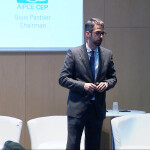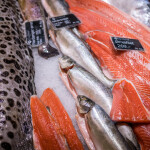A veteran watcher of the ongoing World Trade Organization talks to end harmful fishing subsidies is optimistic progress will be made when talks resume next month, but is critical of the methodology behind the European Union’s claim its catch is 99 percent sustainable.
Isabel Jarrett, manager of the reducing harmful fisheries subsidies program at The Pew Charitable Trusts, told SeafoodSource important progress has been made.
“[WTO] members welcomed the chair’s draft text as a robust basis for full-time negotiations to begin in September … This is the first time since 2007 that members have gotten this far in the process,” Jarrett said. “All the technical elements are there. What’s needed now are dialogue and compromise – with those, we are hopeful that a deal can be reached.”
Negotiators have also stated they’re working towards a deadline of the end of the year, though friction from the broader Sino-U.S. commercial and political conflict appears to have seeped into the talks. China’s aim for special treatment as a developing nation (opposed by the U.S. negotiators) “gets to the crux of the issue”, explained Jarret, “as some of the biggest subsidizers are developing countries.”
“The success of an agreement to discipline harmful fisheries subsidies depends upon the world’s biggest subsidizers taking on the biggest responsibilities,” she said. “While special and differential treatment will be an integral part of an agreement – per the mandate – we hope that members can design flexibilities in such a way that they do not undermine the sustainability goal of an agreement.”
The E.U., Japan, South Korea, and the U.S. also rank alongside China in the list of the top five providers of subsidies deemed by many as harmful – including payments for capacity enhancement and fuel.
Jarret took issue with assertions by E.U. fishery industry figures like Sean O’Donoghue at Killybegs Fisheries Organisation that any cut to fuel subsidies would harm the viability of the European fleet. Subsidies artificially lower the cost of fishing, undermining both the economic and environmental sustainability of fishing, she said.
“If fleets are fishing sustainably, they shouldn’t need to rely on subsidies like fuel subsidies – in this case, fuel detaxation – which are widely considered the most harmful of subsidies, to maintain profitability,” Jarrett said. “A multilateral agreement at the WTO that disciplines fuel subsidies would level the playing field and would be a timely opportunity for the E.U. to transition its fleet away from reliance on fuel detaxation subsidies.”
Jarrett also takes issue with the methodology used by the E.U. Commission in claiming 99 percent of stocks are fished sustainably in the northeast Atlantic. According to Pew’s analysis, 46 percent of fishing limits for the northeast Atlantic at last year’s December Council were set above scientific advice for 2020 – worse than 41 percent the year before.
Photo courtesy of The Pew Charitable Trusts







